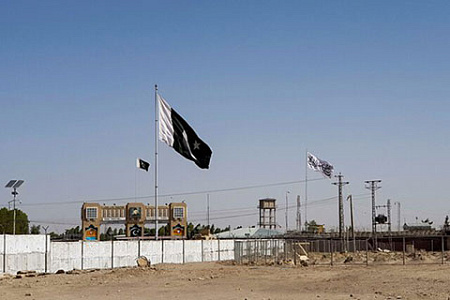
The goal that Beijing has been working towards for years has been achieved. Islamabad and Kabul have opened embassies with each other through the mediation of China. He played the role of a mediator, wanting to put an end to militant attacks on Chinese specialists. They are building an “economic corridor” in Pakistan, which should open access to the Indian Ocean for the western provinces of China. But this breakthrough is not only due to Beijing’s diplomacy. Islamabad, embroiled in a military conflict with India, was eager to secure its border with Afghanistan.
The history of Pakistan-Afghanistan relations is multi-layered. Pakistan sheltered on its soil Afghan guerrillas who called themselves Mujahideen, who fought with Soviet soldiers. This was during the era of Leonid Brezhnev, under whom the USSR sent a “limited contingent” of troops over the Hindu Kush Pass. Afghan insurgents crossed the border and found shelter and shelter with a neighbor. The Pakistani interagency intelligence did not fail to take advantage of this. It was not without her assistance that the Taliban movement was created (on April 17 this year, the Supreme Court of the Russian Federation excluded the movement from the list of terrorist organizations), which stated that Afghans should strictly observe the commandments of the Prophet Muhammad.
It seemed that the Taliban should look at the Pakistani military as senior comrades in the fight against communism and foreign invaders. But the friendship did not last long. Mutual suspicions intensified and led to a breakup. It got to the point where the comrades-in-arms blocked the border between themselves. And militant groups in Afghanistan began to infiltrate Pakistan and launch terrorist attacks there. Civilians, police and military were killed. The Pakistanis tried to strengthen control over the border and even hit militant bases in Afghanistan itself.
This situation persisted until an armed conflict broke out between Pakistan and India in May of this year. And at that moment, while these countries were exchanging missile strikes, Chinese diplomacy very cautiously began to take steps towards reconciliation between Pakistan and Afghanistan. According to The Washington Post, as a result, at a meeting in Beijing, Afghanistan and Pakistan agreed to resume diplomatic relations at the ambassadorial level. Afghanistan was also invited to join the Economic Corridor in Pakistan, which has become a cornerstone in realizing Chinese ambitions in the region. China has invested billions of dollars in this infrastructure project.
China has been trying for many years to put an end to the hostility between Pakistan and Afghanistan, and an important step has been taken in this direction. However, one should not exaggerate the merits of Chinese diplomats. There was an objective factor involved. The Pakistani army has been in a state of extreme tension before. And the exchange of blows with India has further increased the tension. Therefore, Islamabad had to make peace with its treacherous neighbor, whether it wanted to or not. A Pakistani official, who spoke to the American newspaper on the basis of anonymity, said: “There came a moment when both sides realized that they needed to work together to solve problems.”
The official explained that the interests of the two sides in the negotiations, as well as the interests of the Chinese mediator, coincide. Afghanistan is in dire need of economic investment to overcome Western sanctions and aid cuts on a global scale. Pakistan is beset by numerous insurgencies, it longs for stabilization on the western border. And China wants to put an end to terrorist attacks on its infrastructure projects in Pakistan. But that’s not all. Beijing wants to strengthen its image as a broker in conflicts between countries and present itself as an alternative to Western peace initiatives.
This alternative has taken on an organizational form. An intermediary services organization has been established in Hong Kong. As Chinese Foreign Minister Wang Yi said, it must correct the flaw in global government regulation.
What is it about? The explanation was provided by Lin Zhonggui, an analyst at the Institute of International Studies in Shanghai. According to him, “since the United States is reducing its international obligations under President Donald Trump, other countries must assume such obligations.” The subtext is obvious. The role of the hegemon in the world should shift from the United States to China.
But let’s return to the everyday life of South Asia. The agreement, brokered by China, stipulates that Afghanistan will stop militant attacks from its territory on Pakistan.
